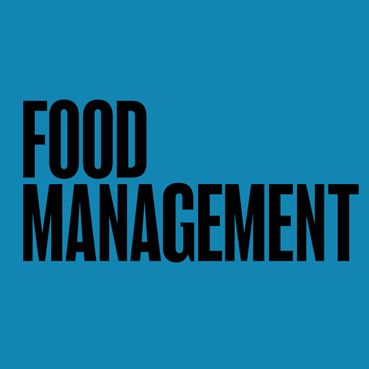How to Look Good and Feel Great... Despite Your Career in Food Service
March 1, 2006
FM Staff
BY PATRICE BARBER, RD
Let's get right to the important questions, shall we?
Do you own more cookbooks than years you are old?
Do you have more than two kinds of mustard, vinegar, salt or dark chocolate in your home?
Do you enjoy reminiscing about great meals you have eaten?
Do you describe your lover's eyes as olive green, chocolate brown or jellybean blue?
Are your favorite shows on the Food Network?
Have you ever left a food show in actual physical pain?
I scored six out of six on this quiz and describe my husband's eyes as the color of light amber maple syrup with flecks of honey and avocado.
I, too, am a foodie, even as many years ago I also chose to become a registered dietitian. As a reader of FM, there is a good chance that you, like me, work in a food-intensive environment and need sound strategies to keep yourself trim and healthy.
Add to this other facts of our lives: long hours on our feet, diligent attendance to the details of our businesses, plus endless customer service and employee interactions when you want to look, feel and act your best, even in the face of occasional (or perhaps frequent) stress.
The food that is all around us, every day, is a constant temptation to over-indulgence. Successfully resisting means having and paying attention to a sound personal and business lifestyle plan.
Start before you leave home. Morning is the ideal time to re-ignite your metabolism. Your metabolism is like a bonfire, but instead of consuming wood and making heat, it burns calories and gives you energy. Two things increase it: physical activity and food. You'll have more energy all day long if you get some of each in the morning. Think about what you can do between getting out of bed and stepping into the shower. Hit the gym, walk the dog, try some tai chi or yoga. Reserve and take advantage of a period of quiet, personal time each morning and use it to set a healthy tone for your day.
Breakfast is a metabolic must and a perfect opportunity for fruit, whole grains and low fat dairy or calcium fortified soy milk—the food groups that adult diets often lack. The keys to morning exercise and breakfast are the same: even a little bit is better than none.
Make it a rule to arrive at work without stopping for an ultra sweet, high calorie, caffeine-laden beverage.
Practice tasting, not eating. Anyone with food production management responsibilities will face a constant challenge in the need to taste and approve everything from a daily special to special event appetizers.
Remember the definition of "taste:" it's a teaspoon or a forkful—not a mouthful. Try to be constantly aware of this occupational hazard and avoid grazing your way through the kitchen. You'll never piece together the equivalent of a balanced meal this way, and it only takes 160 extra calories a day to gain a pound a month. Also, tasting when you are hungry leads directly to overeating.
The ultimate challenge is of course the food show. Hundreds of exhibitors, one stomach! Remember that these shows are about finding new foods for your operation: just taste those you are shopping for. Are you really in the market for more fries or cheesecake?
Make sure lunch is healthful because you really have some control here. Are the vegetables, whole grains and lean meats all in place? Are they beautiful and irresistible? Every day?
By menuing high quality, thoughtfully prepared, healthful choices, you get to have them too! Why do we slow down in the afternoon? Because our lunch was too big, too small or unbalanced. Aim for "just enough" size servings with a mix of lean protein, quality carbs and healthy fat. Consider the productivity-enhancing value you'd bring your organization if all of your staff and co-workers had the energy that eating the right size servings of first class foods provides.
Snack wisely. Make sure your work environment offers healthy snacks: fresh fruit, whole grain crackers, 1-oz packages of nuts, trail mix and bottled water. The key to wise snacking is awareness. Think about how you are feeling before you eat: snacks are for when you are hungry, not tired, bored or stressed.
A food-intensive environment can foil even the best intentions and it's worth remembering that the occasional indulgence is a happy non-issue when your daily habits and an active lifestyle regularly support your health. And with that kind of lifestyle, a workplace full of food can be paradise for a foodie.
Patrice Barber, RD, is the nutritionist with Trojan Hospitality at the University of Southern California.
About the Author
You May Also Like






